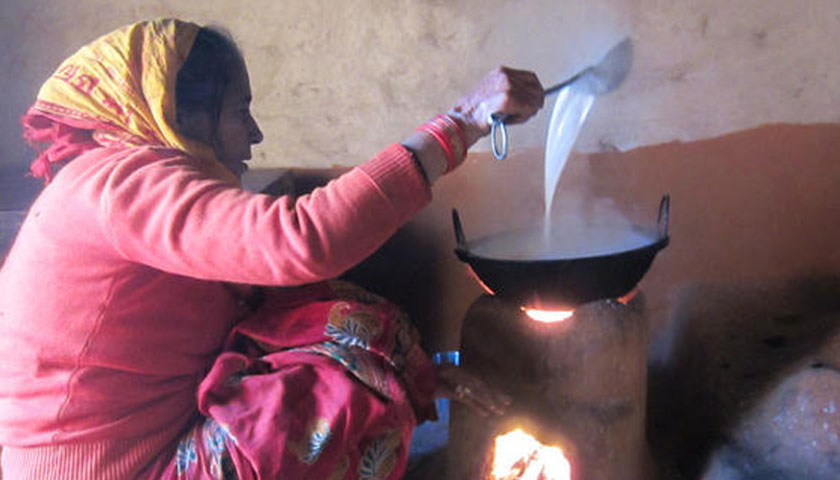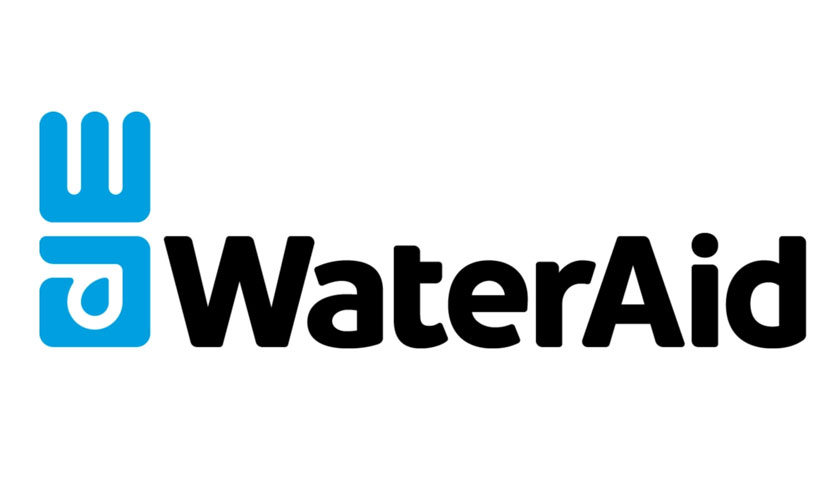Teenage girls in Nepal have been harnessing the power of photography to get their community talking about periods and help end the silence, shame and stigma around menstruation.
International charity WaterAid has been working with the group from Kavre, Nepal, to teach them how to manage their periods hygienically as well as photography skills, as many had never even picked up cameras before. They have now produced a series of touching images showing how traditional period taboos affect their lives.
Their powerful gallery reveals how the belief that menstruation causes women and girls to be contaminated means the adolescent girls face several restrictions during their period, such as not being allowed to touch or drink cow’s milk as it would curse the cow, or look in the mirror, or even eat with their family while menstruating. Many were sent away from home to stay elsewhere during their first period.
Empowered by the project and the knowledge they now have about menstruation, the girls are using the photo series to challenge the period taboos and drive change in their families and wider community.
Manisha Dhakal, 15, said:
I feel insulted and humiliated when I have to eat separately during my period when I need care and love. We can stay together on normal days, but not during menstruation. Adolescent girls like us have also been adversely affected by the tradition of being prohibited from touching and drinking milk during our period when we need nutritious food.
Satyadevi Chaulagain, 15, said:
My family would not allow me to go into the kitchen during my period in the past. These days, they have allowed me to. I convinced my mother and father gradually, and change has taken place in my house.
Manisha Karki, 16, and Bisheshta Bhandari, 17, were part of a similar project run by WaterAid in their small rural village in Sindhuli two years ago. They organised an exhibition of their photos to open up discussions around the restrictions placed on them and what is required to be able to manage periods hygienically and with dignity. They succeeded in driving change in their own community, and have now shared their experiences with the girls in Kavre to inspire and encourage them.
This project was possible with the support of UK aid from the British people.
Manisha Karki believes it is important to share what she’s learned about managing periods, saying:
We did not know much about menstruation before and I could not speak about it, but I think such things should be discussed openly as we now know we don’t have to avoid touching certain things or seeing people during our period. Many adolescent girls like us have been suffering because of taboos. People still take menstruation as bad thing. I wish such superstition had disappeared very soon. Raising awareness of menstruation and hygiene in remote areas would help them get a good education and can save their lives.
Bisheshta Bhandari added:
I would tell all girls that every woman has to pass through menstruation. It is just a normal biological process in a woman. It is necessary to teach young people to maintain personal hygiene during their period rather than forbidding them to touch things and go to certain places.
A WaterAid-Unicef report shows that in South Asia, where schools are making some progress in providing decent toilets and menstrual hygiene to their students, work remains to be done as up to two-thirds of girls in the region did not know about menstruation before starting their periods, and as many as 1 in 3 miss school days every month.
WaterAid Chief Executive Tim Wainwright said:
Until we stop cloaking the subject of periods in stigma and shame, women and girls wherever they happen to live will not be able to get the facilities and support they need to be able to deal with what is a normal part of life with dignity and confidence. Our societal blushes and awkwardness mean that too many women and girls face more of a struggle to deal with their periods because they are unable to voice their needs and concerns.
Us men need to play our part in opening up the conversation – whether we are fathers, in charge of a school budget, caring partners or a politician concerned about the impact of poverty and social exclusion.
Every society needs to grow up about the issue because our embarrassment is contributing to a situation where millions of girls do not know how to manage their period hygienically, and for the one in three globally lacking access to a decent toilet, every month becomes a challenge. Without decent sanitation facilities, many girls miss school or drop out altogether when the reach adolescence, and in some parts of the world, they are restricted from everyday activities like eating with the family and even looking in the mirror.

